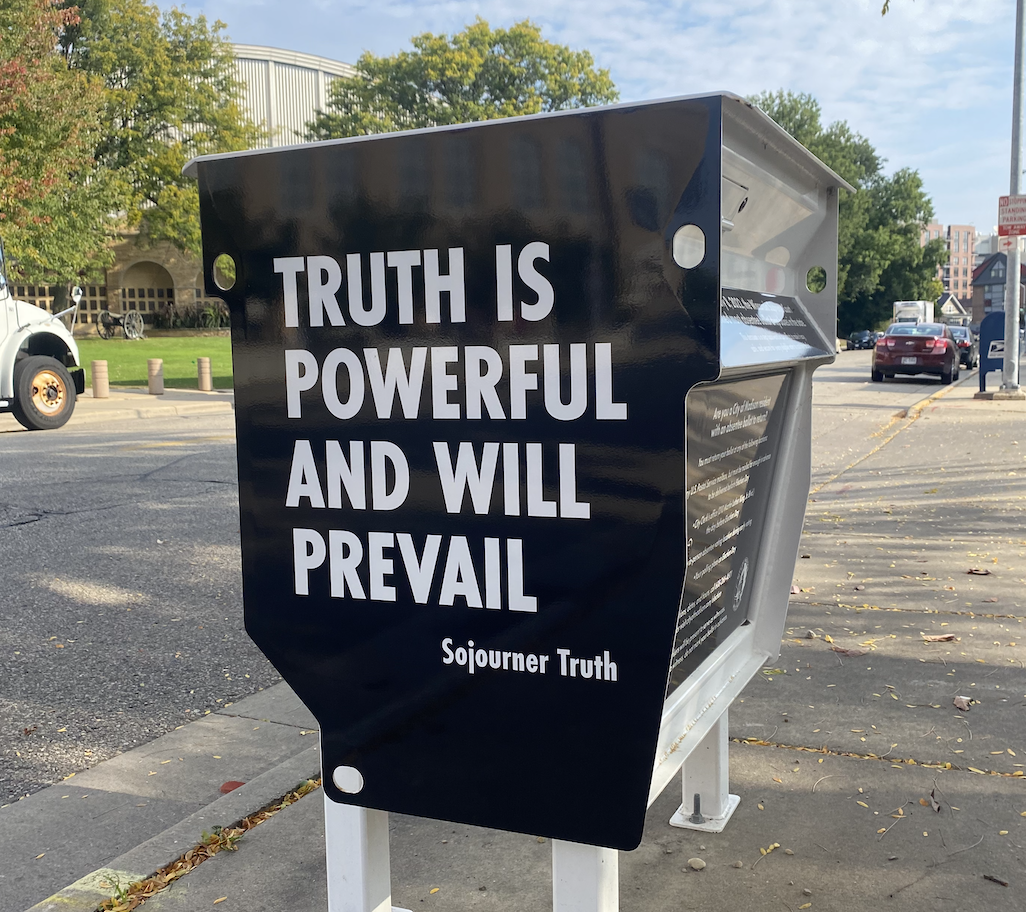Dear editor:
Darryn Beckstrom's Sept. 16 editorial ("Atheists misuse First Amendment") misrepresents atheists, the First Amendment and the case brought by a church/state separation group against University of Minnesota programs that would have promoted religion.
Beckstrom thinks the Madison-based Freedom from Religion Foundation (FFRF) should stick to its own city, instead of filing suits in other areas of the country. But the law makes no such restrictions. FFRF has members in all 50 states, and joined seven Minnesota taxpayers in the UM case. FFRF and allied plaintiffs have had standing in this and similar cases and the courts have recognized this.
Beckstrom accuses "anti-religious" organizations of interpreting the establishment clause to mean that public entities should not mention religion. I assume she refers not just to FFRF, but such groups as the American Civil Liberties Union and Americans United for Separation of Church and State, who oppose government policies respecting an establishment of religion. Calling them "anti-religious" disregards their defense of free exercise of religion and ignores their religious members, who don't want government endorsing or getting entangled in religion.
None of these groups have filed suit for mere mention of religion. State university courses in religious studies, sociology, philosophy, history and many other disciplines mention religion or God all the time, with no opposition from anti-establishment groups. That's because they have the secular purpose of teaching about religion, rather than promoting it. Such was not the case with the UM partnership in the Minnesota Faith Health Consortium, nor with its faith/health leadership curriculum.
These programs were not merely studying the correlation between faith and healing. Publicly funded scientific studies on these variables have been conducted in a neutral, peer-reviewed context, with no opposition from anti-establishment groups. In contrast, the Minnesota programs were not neutral, but violated all three parts of the Supreme Court's "Lemon" test.
The University's own publicity announced its intention to train faith/health leaders for prison ministries and church congregations. That intention violates the first part of the Lemon test, since state programs must have a secular purpose.
The UM programs presupposed that faith would enhance health, and their purpose was to foster students' faith and train them to inject religion into healthcare. That violates the second part of the Lemon test, since it would have the primary effect of advancing religion.
The Consortium partnered publicly funded UM with Luther Seminary, a private religious organization. The UM faith/health leadership courses were offered to Luther Seminary students to fulfill requirements for degrees in divinity, or theology in pastoral care. This integration of church and state resources and programs violates the third part of the Lemon test, which protects against excessive entanglement between church and state.
Beckstrom blames atheists for UM's withdrawal from the faith/health programs. She thinks UM yielded to bullying, and that the case law was on UM's side. But her citation of Lemon v. Kurtzman undermines her argument, and bolsters the case brought by FFRF and its Minnesota members. Before the UM case, the courts had sided three times with FFRF against government funding of faith-based initiatives, including a ruling against state funding of the Montana Faith Health Cooperative. With all of this legal precedent already established, UM was wise to conserve its resources and withdraw from the faith-based programs. Beckstrom's main quarrel shouldn't be with the atheists who brought suit, but with the courts that have decided these cases in favor of keeping church and state separate.
Beckstrom thinks the Legislature, not the courts, is the proper forum for challenging programs like the proposed Minnesota Council of Faith-Based Initiatives. But federal funding of religion was already outlawed by the United States Congress in 1791 with the ratification of the First Amendment and its anti-establishment clause. With the 1868 ratification of the Fourteenth Amendment, state and local funding of religion were also outlawed. With the legislative matter already settled by our Constitution, judicial challenges are the appropriate response to violations.
When will the litigation stop? When taxpayer resources stop being diverted unconstitutionally toward programs that promote religion. Every citizen has the right to financially support the religion of his or her choice, or no religion at all. Taxpayer-funded faith-based initiatives take away that choice, and plaintiffs who challenge them are fighting for the rights of all of us.
Chad S. Inman ([email protected]) is a University Special Student taking courses in philosophy and journalism.







